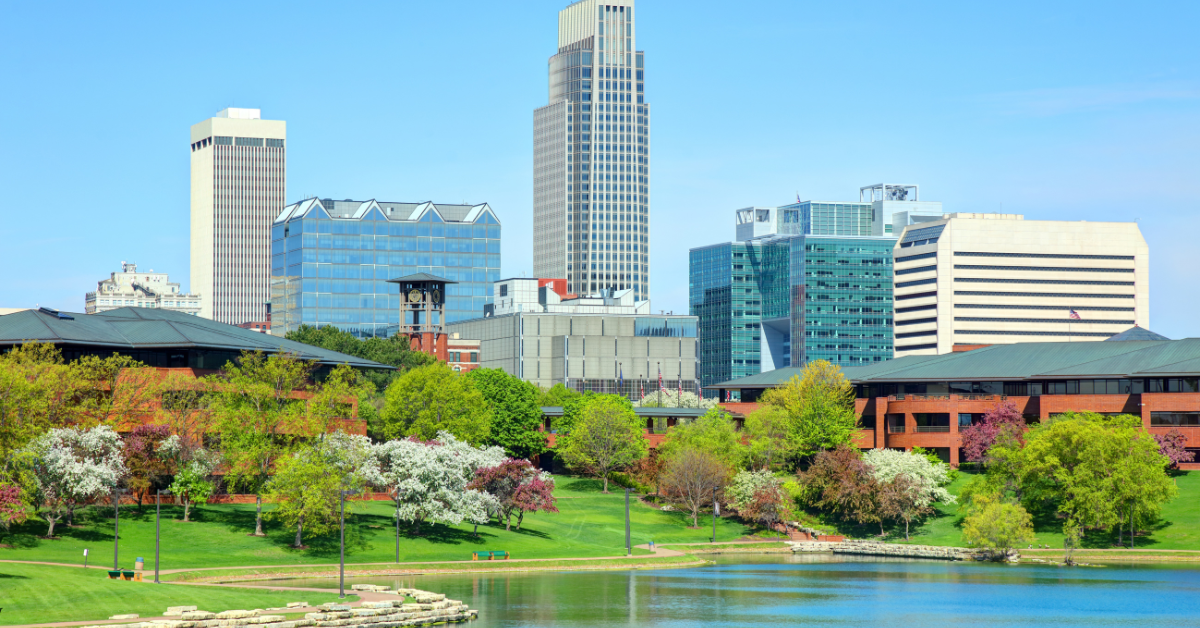Omaha, a city in Nebraska, is widely known for its cultural and historical roots tied to the Omaha Tribe. However, there is no established kanji representation for Omaha in Japanese, and katakana has become the only common form. This article explores the reasons for the lack of kanji, the cultural connections of the city, and how Japanese people perceive Omaha today.
Why Omaha Has No Kanji Representation
The name Omaha originates from a Native American language, which makes it impossible to translate directly into Japanese kanji. Instead of forcing a symbolic translation, the Japanese language adopted the katakana transcription, preserving the original sound.
In the past, foreign names such as “America” (亜米利加) and “London” (倫敦) were written with kanji, but today, ease of use takes priority, and katakana is the norm. Omaha followed the same path, establishing katakana as its sole accepted form.
The Relationship Between Omaha City and the Omaha Tribe
The name of Omaha City is derived from the Omaha Tribe, who lived along the Missouri River and built their culture through farming and hunting. The link between city and tribe is strong, and the place name serves as a reminder of the region’s indigenous history.
| Name | Description |
|---|---|
| Omaha City | The largest city in Nebraska, serving as an economic and cultural hub |
| Omaha Tribe | Indigenous people of Nebraska, the origin of the city’s name |
| Connection | The city name comes from the Omaha Tribe, symbolizing history and culture |
The Image of Omaha in Japan
Omaha is not as widely recognized in Japan as cities like New York or Los Angeles. However, certain associations are familiar to Japanese audiences.
- Economic city image
Known as the home of world-renowned investor Warren Buffett, Omaha holds a special meaning for those interested in finance and investment. - Calm Midwestern city
Surrounded by agriculture and nature, Omaha is seen as a peaceful and livable city rather than a major tourist destination. - Sports stage
Omaha is also recognized as a host of major sporting events, particularly in baseball and swimming.
The Link Between Omaha and Sports Culture
One of the strongest ways Omaha projects itself internationally is through sports. The most notable is the College World Series, the premier college baseball championship held every summer. It attracts nationwide attention and is considered Omaha’s seasonal highlight. Omaha has also gained recognition as the host of the U.S. Olympic Swimming Trials, where elite swimmers compete for national team spots.
| Event | Description | Impact on the City |
|---|---|---|
| College World Series | National college baseball championship held every summer | Boosts summer tourism and recognition |
| Olympic Swimming Trials | Determines the U.S. Olympic team | Elevates Omaha’s international profile |
| Basketball and Football | Popular primarily at the collegiate level | Embedded in the everyday local culture |
Omaha’s Economic and Cultural Background
Beyond sports, Omaha also thrives as an economic hub. The city is home to Warren Buffett’s Berkshire Hathaway, attracting investors from around the world. On the cultural side, Omaha has a rich tradition in jazz and blues, contributing to a vibrant local arts scene.
| Sector | Features | Japanese Perception |
|---|---|---|
| Economy | Buffett’s headquarters, a global investment destination | Seen as a “holy place” for investors |
| Culture | Strong traditions of jazz and blues | Represents a slice of American culture |
| Lifestyle | Midwestern calmness and livability | Viewed more as a residential city |
Conclusion
There is no kanji representation for Omaha, and katakana remains the only standard form. This reflects respect for indigenous names and avoids forcing unnatural translations.
For Japanese people, Omaha carries three key associations:
- The home of a global investment icon
- A calm Midwestern city
- A stage for major sports events
Especially through the College World Series and swimming competitions, Omaha plays a major role in presenting itself to the world.
To understand Omaha, one must consider its history, economy, culture, and sports together. While it may not be a flashy tourist city, its deeper background makes Omaha a meaningful and attractive place even for those in Japan.






